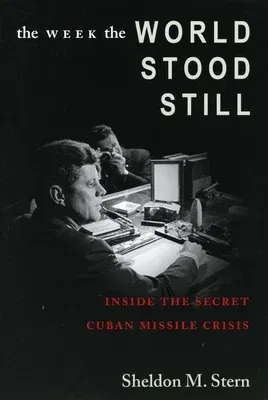The Cuban missile crisis was the most dangerous confrontation of the
Cold War and the most perilous moment in American history. In this
dramatic narrative written especially for students and general readers,
Sheldon M. Stern, longtime historian at the John F. Kennedy Library,
enables the reader to follow the often harrowing twists and turns of the
crisis.
Based on the author's authoritative transcriptions of the secretly
recorded ExComm meetings, the book conveys the emotional ambiance of the
meetings by capturing striking moments of tension and anger as well as
occasional humorous intervals. Unlike today's readers, the participants
did not have the luxury of knowing how this potentially catastrophic
showdown would turn out, and their uncertainty often gives their
discussions the nerve-racking quality of a fictional thriller. As
President Kennedy told his advisers, "What we are doing is throwing down
a card on the table in a game which we don't know the ending of."
Stern documents that JFK and his administration bore a substantial share
of the responsibility for the crisis. Covert operations in Cuba,
including efforts to kill Fidel Castro, had convinced Nikita Khrushchev
that only the deployment of nuclear weapons could protect Cuba from
imminent attack. However, President Kennedy, a seasoned Cold Warrior in
public, was deeply suspicious of military solutions to political
problems and appalled by the prospect of nuclear war. He consistently
steered policy makers away from an apocalyptic nuclear conflict,
measuring each move and countermove with an eye to averting what he
called, with stark eloquence, "the final failure."

